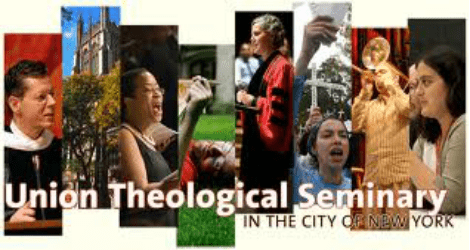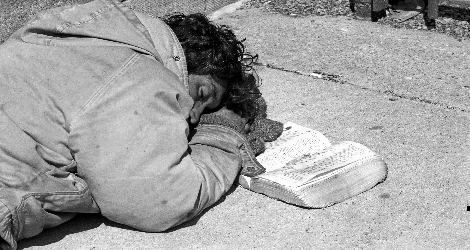The Response of the Social Gospel
[wpcol_1half id=”” class=”” style=””]
Conwell did not go long unchallenged. A movement of socially progressive ministers and professors, largely centered in the urban centers of the northeastern United States, began to coalesce into a theological movement which came to be known as the Social Gospel. In a period stretching from the end of the American Civil War to the early decades of the twentieth century, the Social Gospel theologians were the voice of loyal Christian opposition to Conwell and his ilk. In the words of Winthrop Hudson, “By the turn of the century the adherents of two antithetical Gospels—‘the gospel of wealth’ and ‘the social gospel’—were locked in combat and struggling for predominance.”[26]
Within mainline churches, a growing number of influential preachers began to embrace a more progressive theology. Continuing to emphasize individual character as the primary focus of religion, ministers such as Horace Bushnell and Henry Ward Beecher began to develop a theology which emphasized the humanness of Jesus and offered his work in the world as a moral challenge to nineteenth century Christians. Individual transformation, it was asserted, must be accompanied by devotion to the work of Jesus and the following in his footsteps—an idea potent enough to exercise the more systematic theologies of writers such as Walter Rauschenbusch.
In his earliest work, Christianity and the Social Crisis, Rauschenbusch critically contrasted the spirit of the early church with a “contemporary social impotence”[27] in Christianity. What Rauschenbusch praised in the early church was its fraternalism, its recognition of all members as equally children of God. And Rauschenbusch takes great pains to show that a spirit of fraternity was not simply part of their religious lives, but an organizing principle for society at large. Discussing the probable role of deacons in the early church, Rauschenbusch concludes that the office involved not just preaching and teaching, but the providing of material sustenance. Of the early Christian communities, he writes “the administration of mutual helpfulness was a vey important part of their existence, and…their common life must have extended far beyond their common religious duties.”[28]
The extension of fraternity as an organizing principle of society resulted in the relief of the poor, care for those suffering loss, and a high valuing of work. In describing the duties of early Christians to their communities, Rauschenbusch writes, “The duty of working was strictly urged in the primitive church; holy idleness was an outgrowth of later asceticism.”[29] Such a prioritizing of work is unremarkable and we have seen it to varying degrees already. But Rauschenbusch ascribes to the early church a proactive function in creating work. He writes, “…if a man was out of work, the churches assumed the responsibility either of finding him a job or of caring for him. Thus the means of life were guaranteed him in either case.”[30] The stigmatization of the unemployed and the economically disadvantaged are, in Rauschenbusch’s reconstruction of the early church not present because the distribution of work and wealth are part of the responsibilities of fraternity placed upon the community at large.
The accuracy of Rauschenbusch’s historical analysis is not ultimately important. The crucial role played by this reconstruction is that it forms the core of Rauschenbusch’s understanding of the Kingdom of God, a concept that will become the organizing principle of all of his work. As Harlan Beckley explains, “we must begin with his convictions that the centrality of the Kingdom of God in the work of Christ is a redemptive force bearing on the social order and is normative for human conduct and for social institutions.”[31] Rauschenbusch is reintroducing to the discussion of human activity in the world a notion that God is actively directing our actions towards a common good.
[/wpcol_1half] [wpcol_1half_end id=”” class=”” style=””]
The most concise picture of what the Kingdom of God looks like is found in Christianizing the Social Order. Here Rauschenbusch draws on the familiar Pauline metaphor of society as organic. He writes, “Paul’s philosophy of the Christian Church is the highest possible human society. The ideal society is an organism and the Christianizing of the social order must work toward a harmonious co-operation of all individuals for common social ends.”[32] The remaking of society in this image is the task Rauschenbusch sets for theology and for the church.
For the task of bringing about the Kingdom, Rauschenbusch identifies several elements of society as already largely fraternal in their ethical practice and to which society can look to for resources for regeneration. The family, the church, our educational system, and democratic politics all operate more or less in such a way that individual interests are channeled into a broader interest towards society as a whole. Rauschenbusch exults, “Social Christianity is not, then, an untried venture. The larger part of Christianizing the social order is already accomplished, and the success which has attached to it ought to create a victorious self-assertion in all who stake their faith on its effectiveness. These redeemed portions of our social life are the portions to which our hearts go out in loving pride and loyalty.”[33]
Noticeably absent from Rauschenbusch’s list of the redeemed segments of the social order is business. Business life is that portion of our society from which the greatest threat to the Kingdom of God emanates. Rauschenbusch points to the exploitation of children, the callous acceptance of industrial accidents, and the unrelenting hostility between employer and employee as signs that a fraternal ethic has remained largely absent from our business relations.
Charles Howard Hopkins, who wrote one of the earliest histories of the Social Gospel movement in the 1940s, gives a pithy summation of Rauschenbusch’s critique of capitalism, citing four basic tenets of capitalist relationships that run counter to the Kingdom of God.[34] The first and most overriding of Rauschenbusch’s concerns is that capitalism operates primarily by competition, being motivated by “selfishness, covetousness, and craft, rather than mutual interest, good will, comradeship, and solidarity—the marks of a Christian social order.”[35] Second, Rauschenbusch complains that power in a capitalist system is always autocratic, never communal. Third, capitalism thrives when it practices dishonesty in the form of “adulteration of foods, short weights, spurious advertising, overproduction, and similar practices perilous not only to the consumer but also to business and national morality.”[36] Finally, capitalism is driven to evaluate actions based solely on profit motive.
The critique is powerful in its rhetorical passion, but it doesn’t contain any strikingly original propositions. Christianizing the Social Order exists primarily as an institutional critique, focusing as it does on the structural impediments to the realization of the Kingdom of God while at the same time noting those structural elements of society which contribute to its realization. Rauschenbusch has affirmed the priority of a social understanding of all elements of our life, including our economic activity, over the prevailing capitalist ethic.
In doing so, Rauschenbusch made a major contribution to reclaiming social justice as a vital, indeed central piece of Christian work. The blurring of the distinction between the church and the world is more pronounced in Rauschenbusch than in any American theologian up to his time. Rauschenbusch’s theology has as its goal the extension of a Christian ethic into every segment of society, hence his program of Christianizing the social order. While we might balk at the language of Christianizing today, we should nonetheless take seriously his emphasis on not limiting our religious imagination to private, individual concerns.
[/wpcol_1half_end]






Unbound Social